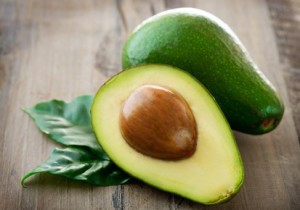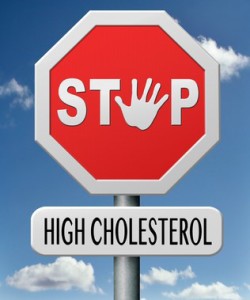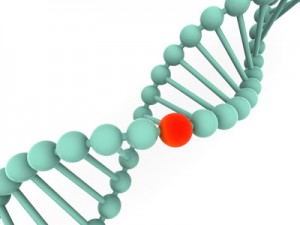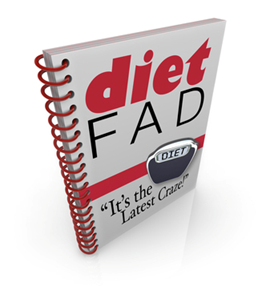Should Pregnant Women Take Omega-3 Supplements?
Author: Dr. Stephen Chaney
Long chain omega-3 fatty acids, especially DHA, have been shown to be very important during pregnancy, especially during the third trimester when DHA accumulates in the fetal brain at a very high rate. It is during that third trimester that the fetus forms the majority of brain cells that they will have for an entire lifetime.
Inadequate intake of long chain omega-3 during pregnancy and lactation has been shown to be associated with poor neurodevelopmental outcomes. These include poor developmental milestones, problem solving, language development and increased hyperactivity in the children (Coletta et al, Reviews in Obstetrics & Gynecology, 3, 163-171, 2010).
- The Current Recommendation is 200 mg DHA/day During Pregnancy & Lactation.
In order to support brain development in the fetus, some experts have recommend intake of 300 mg per day of DHA during pregnancy. The best dietary sources of long chain omega-3 fatty acids such as DHA are fish and fish oil supplements. However, because of concerns about seafood contamination with heavy metals and PCBs (both of which are neurotoxins), the FDA recommended in 2004 that pregnant women limit seafood consumption to two servings a week, which amounts to about 200 mg/day of DHA – and this has been subsequently adopted by the American College of Obstetricians and Gynecologists and the European Union as the amount of DHA recommended during pregnancy and lactation (Coletta et al, Reviews in Obstetrics & Gynecology, 3, 163-171, 2010).
Even that recommendation for DHA from seafood could be overly generous. A recent study using the EPA risk assessment protocol concluded that some farmed salmon were so contaminated with PCBs that they should be eaten no more than once a year (Hites et al, Science, 303: 226-229, 2004).
- Most Pregnant & Lactating Women In The US Are Probably Not Getting The Recommended Amount of DHA In Their Diet
Many pregnant women avoid seafood because of concerns about mercury and PCBs. Unfortunately, the other food sources of omega-3 fatty acids in the American diet, even many omega-3 fortified foods and supplements, are primarily composed of the short chain omega-3 fatty acid linolenic acid (also called alpha-linolenic acid or ALA), and only 1-4% of linolenic acid is converted to DHA in the body (Coletta et al, Reviews in Obstetrics & Gynecology, 3, 163-171, 2010).
Consequently, experts have been concerned for some time that American and Canadian women may not be getting enough DHA during pregnancy and lactation, but it was not clear how serious an issue this was.
Do Women Get Enough Omega-3 During Pregnancy?
 A group of scientists decided to test the adequacy of DHA intake by comparing DHA intake with the recommended 200 mg/day in a group of 600 pregnant and lactating women enrolled in the Alberta Pregnancy Outcomes and Nutrition study (Jia et al, Applied Physiology, Nutrition & Metabolism, 40: 1-8, 2015). The average age of the women in this study was 31.6. They were primarily Caucasian and married. 92% of them breastfed their infants. Most of them were taking a multivitamin or prenatal supplement on a daily basis. Approximately 1/3 of them were also taking a long chain omega-3 supplement.
A group of scientists decided to test the adequacy of DHA intake by comparing DHA intake with the recommended 200 mg/day in a group of 600 pregnant and lactating women enrolled in the Alberta Pregnancy Outcomes and Nutrition study (Jia et al, Applied Physiology, Nutrition & Metabolism, 40: 1-8, 2015). The average age of the women in this study was 31.6. They were primarily Caucasian and married. 92% of them breastfed their infants. Most of them were taking a multivitamin or prenatal supplement on a daily basis. Approximately 1/3 of them were also taking a long chain omega-3 supplement.
The majority of women had completed college and had annual household incomes in excess of $100,000/year. In short, this was a very affluent, well-educated group of women. This is the kind of group one might consider most likely to be getting enough DHA from their diet.
DHA intake was based on 24 hour food recalls and supplement intake questionnaires collected in face-to-face interviews 2-3 times during pregnancy and again 3 months after delivery. The DHA content of the diet was determined from these data using well established methods.
The results were both dramatic and concerning.
- Only 27% of pregnant women and only 25% of postpartum women who were breastfeeding met the recommendation of 200 mg of DHA/day. In short, nearly three-quarters of the women in the study were not getting enough (DHA) omega-3 during pregnancy and lactation.
- When the women who were taking DHA-containing supplements were excluded from the data analysis, only 13% of pregnant and lactating women were getting enough DHA from their diet. In short, nearly 90% of the women relying on diet alone were not getting enough DHA.
- Taking a DHA-containing supplement increased the likelihood of achieving the recommended 200 mg DHA/day by 10.6 fold during pregnancy and 11.1 fold during breastfeeding.
- Not surprisingly, seafood, fish and seaweed products were the major contributors to the total dietary DHA intake.
The authors concluded “Our results suggest that the majority of participants in the cohort were not meeting the EU recommendations for DHA during pregnancy and lactation, but taking a supplement significantly improved the likelihood that they would meet the recommendations.”
The Bottom Line
- Long chain omega-3 fatty acids, especially DHA, are essential for normal brain development. Inadequate DHA intake during pregnancy and lactation is associated with poor developmental milestones, problem solving, language development and increased hyperactivity in the children.
- There is no established Daily Value for omega-3 fatty acids. However, the American College of Obstetricians and Gynecologists and the European Union recommend 200 mg DHA/day during pregnancy and lactation.
- This recommendation is based partly on the amount of DHA needed for brain development and partly on the FDA warning that pregnant women should not consume more than 2 servings of fish/week due to heavy metal and PCB contamination.
- This recommendation can be met by 1-2 six ounce servings/week of fish or a fish oil supplement containing 550 – 600 mg of omega-3 fatty acids.
- Many pregnant women avoid fish because of concerns about contamination with heavy metals and PCBs, both of which are neurotoxins. Therefore, the major source of omega-3s in the American and Canadian diets are short chain omega-3 fatty acids that are only inefficiently (1-4%) converted to DHA.
- Consequently, experts have been concerned for some time that American and Canadian women may not be getting enough DHA during pregnancy and lactation, but it was not clear how serious an issue this was.
- A recent study done with a group of 600 women enrolled in the Alberta Pregnancy Outcomes and Nutrition study found that:
- Only 27% of pregnant women and only 25% of postpartum women who were breastfeeding met the recommendation of 200 mg of DHA/day. In short, nearly three-quarters of the women in the study were not getting enough (DHA) omega-3 during pregnancy and lactation.
- When the women who were taking DHA-containing supplements were excluded from the data analysis, only 13% of pregnant and lactating women were getting enough DHA from their diet. . In short, nearly 90% of the women relying on diet alone were not getting enough DHA.
- Taking a DHA-containing supplement increased the likelihood of achieving the recommended 200 mg DHA/day by 10.6 fold during pregnancy and 11.1 fold during breastfeeding.
- This was a very affluent, well-educated group of women. If any women anywhere are getting enough DHA during pregnancy and lactation, this should have been the group that was.
- The authors concluded “Our results suggest that the majority of participants in the cohort were not meeting the EU recommendations for (DHA) omega-3 during pregnancy and lactation, but taking a supplement significantly improved the likelihood that they would meet the recommendations.”
These statements have not been evaluated by the Food and Drug Administration. This information is not intended to diagnose, treat, cure or prevent any disease.













